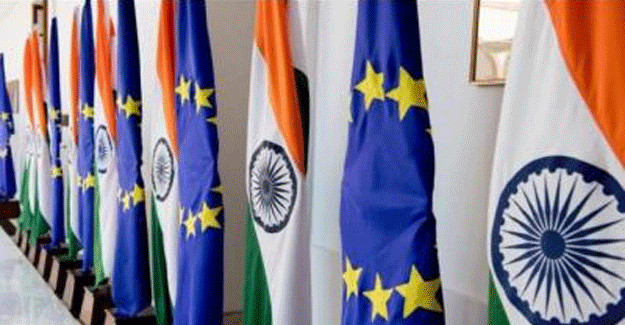
EU Seeks Ambitious Bilateral Trade And Investment Agreement With India
The European Union seeks an ambitious and comprehensive bilateral trade and investment agreement (BTIA) with India and is not in favour of an early harvest pact covering fewer areas, EU officials said a day ahead of the 15th India-EU summit. Briefing reporters, one of the EU officials said that India had in recent times exhibited a protectionist streak - raising tariffs, speaking of self reliance and reducing procurement opportunities for European firms. "We have seen a trend in India that goes towards the protectionist side. We have a mandate to negotiate with India," the official said adding that the BTIA the EU was looking at was comprehensive. The official was responding to a question on whether the European side would accept an offer put forth by Commerce Minister Piyush Goyal in which he had proposed a limited "early harvest" pact with the EU. In many ways India had moved backwards on several issues since the last round of talks in 2013 and some technical discussions in 2017, the EU official said pointing out government procurement, raising of tariffs and not being enthusiastic on working on trade and sustainable development issues as areas of wider divergence. Talks for the trade pact began in 2007 but was called off after many rounds in 2013. Though some technical level talks were held to break the logjam in 2017, there has been no progress to report. The EU is India's largest trading partner despite "Brexit" or Britain's departure from the grouping and the source of 90 billion euros in investment since 2000. Stating that the two sides were "quite far apart" on a number of trade issues, the official said, "The question of an early harvest is not something EU wants to see in its engagement with India. We want a far reaching trade agreement... it should be a win-win and that implies that we focus not only on low hanging fruit but bring our relationship overall to a new level," the official said. Trade and investment is a key issue on the agenda for talks when Prime Minister Narendra Modi attends the virtual summit with leaders of the EU-Charles Michel, president of the European Council, and Ursula von der Leyen, president, European Commission (EC). This will be the first meeting between the two sides since von der Leyen was elected as head of the EC last year. This is the 15th meet between the two sides, though the first India-EU Summit took place in 2000 in Lisbon. Among the takeaways include a new bilateral cooperation roadmap that will list out 25 policy areas for collaboration including foreign policy, security, defence and sustainable modernisation. The two sides will be looking at reconvening a dormant human rights dialogue. The summit will be the launch of the economic dialogue between Indian commerce minister Piyush Goyal and his European Commission counterpart Phil Hogan. The two sides are looking at concluding a pact that will allow closer cooperation between India's Central Bureau of Investigation and Europol. The summit will also provide the opportunity for the two sides to announce a maritime security dialogue. Ahead of the summit, the two sides signed a pact for increased civil nuclear cooperation which involves closer collaboration in research and other areas, a second EU official said. The EU had on its part put forth a "standalone" investment protection agreement which India has not responded to. "That has not yet received a positive reaction from the Indian government, it will be discussed at the leaders' meeting," the official said describing as "very unfortunate" India's decision two years ago to terminate all bilateral investment protection agreements and not revive those that had expired. This affected 25 of the 27 members in the bloc, the official said adding that "this was not the right signal we expected from a future FTA partner." The Indian move created doubts in the minds of European investors who though keen to invest in India, felt was risky without a framework investment protection pact. India on its part was reflecting to the EU's suggestion for an investment court system while the EU was not comfortable with India's suggestion to exhaust local remedies - ie disputes be heard by Indian courts first - before approaching international tribunals. Besides trade and investment, the EU and India will be looking at shoring up collaboration on the global stage in the multilateral fora. This included at the UN Security Council and the World Trade Organisation. WTO was on the point of collapse especially the dispute settlement mechanism that required urgent attention, the official said. Similarly, at the UN Security Council, the EU looked forward to working with India to ensure there was no paralysis in decision making at the global high table due to the use of the veto or due to political infighting, the person added.
Textile Excellence
If you wish to Subscribe to Textile Excellence Print Edition, kindly fill in the below form and we shall get back to you with details.













